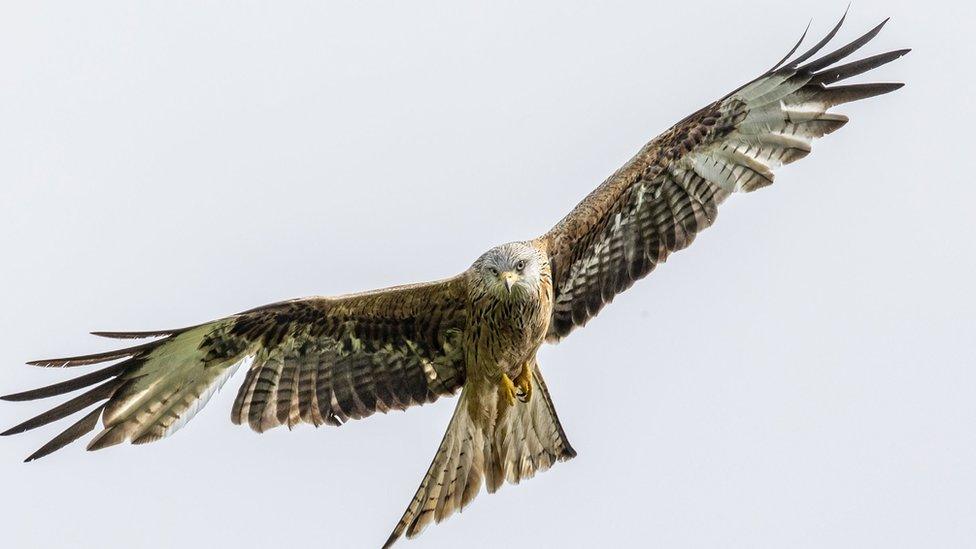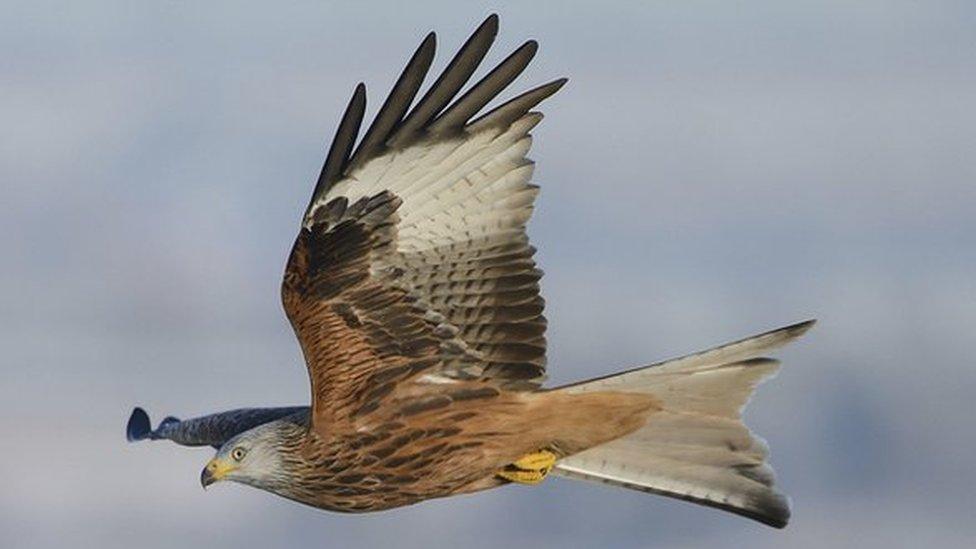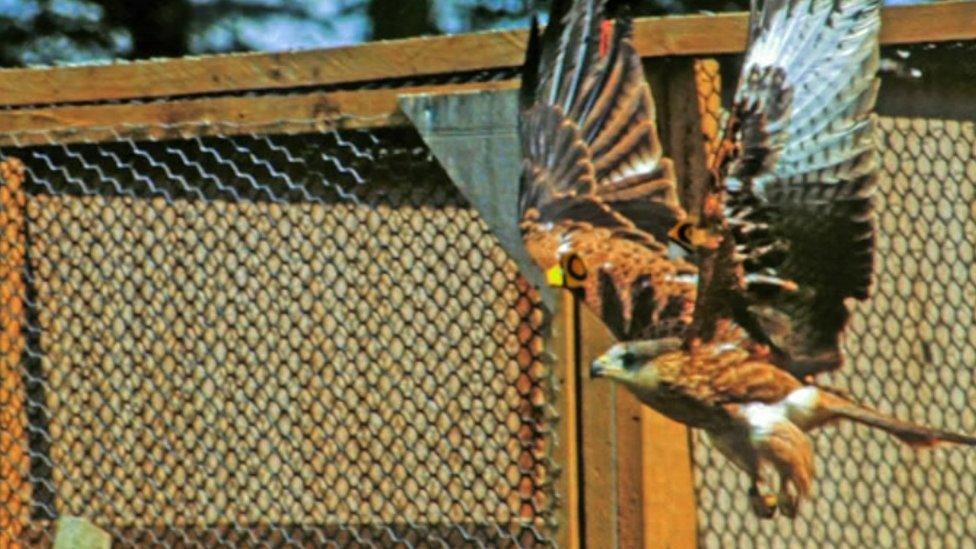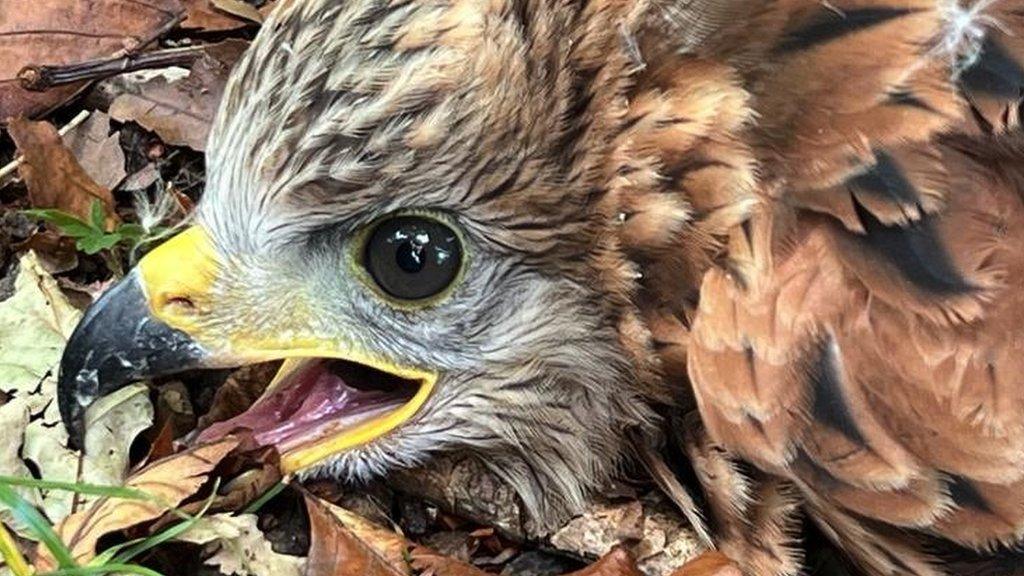Red kite's poisoning investigated by Norfolk Police
- Published

Tests found a red kite had very high levels of a toxic insecticide in its system at the time of its death
Police have launched an investigation into the poisoning of a red kite found dead last summer.
The bird of prey, protected by law, was discovered by a member of the public in a field in North Creake, near Fakenham, Norfolk, in August.
A post-mortem examination detected high levels of an insecticide normally used on wasps and ants inside properties.
Wildlife officer Chris Shelley said there was a "zero tolerance approach to the persecution of birds of prey".
The bird had suffered no obvious injuries, which led to the examination being carried out under the Wildlife Investigation Scheme, external in November.
A number of pesticides and insecticides were found in the bird's body, including very high levels of bendiocarb, thought to be the likely cause of death.
National Wildlife Crime Unit officers and the RSPB investigation team conducted unsuccessful searches to find the source of the substance, and so were now asking for the public's help with the investigation.

About red kites
The red kite is one of Britain's largest birds of prey, known for its reddish-brown body, long wings, forked tail and distinctive "mewing" calls
Once considered a threat to game birds and domestic animals like cats and dogs, the red kite was hunted close to extinction in the UK
Red kites are largely scavengers, feeding on carrion and small prey such as rabbits
The birds are protected under the Wildlife and Countryside Act

Mr Shelley, from Norfolk Constabulary, said: "We've been waiting for the results of the toxicological analysis, and now know the levels of bendiocarb contained within the samples taken from the bird have not come from the approved use of such a product.
"I have to conclude that this product has been used illegally in very close proximity to where the bird was recovered.
"I'd appeal to anybody who knows anything that may help get to the bottom of what happened here, or indeed has any information about anything similar happening, please get in touch with us."
He added that products containing bendiocarb can only be bought and used by professional pesticide users inside buildings to limit the risks to other insects and animals.

Follow East of England news on Facebook, external, Instagram, external and X, external. Got a story? Email eastofenglandnews@bbc.co.uk, external or WhatsApp us on 0800 169 1830
Related topics
- Published31 July 2023

- Published20 May 2023

- Published24 June 2022

- Published20 June 2022
